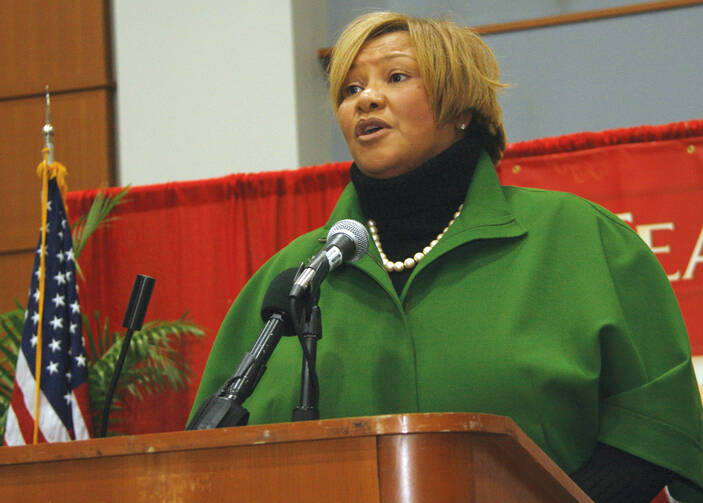“This bill discriminates against our African-American and Hispanic neighbors, sick seniors, the disabled, the uninsured and all who are vulnerable in our community,” said Michael Scott, director of the D.C. Catholic Conference, The conference joined a broad-based coalition of groups in opposing the measure.
Scott said in a statement after the vote, ”Our coalition will continue to fight this bill, which has few safeguards to protect the vulnerable and does nothing to help the thousands of D.C. residents desperate for access to better health care and improved social services, such as counseling.”
Opponents say the bill is flawed because it endangers “high risk" populations, including the elderly, the uninsured and underinsured, the homeless, low-income individuals and those with intellectual disabilities. Critics also charge the bill does not require doctors to give patients a screening for depression before providing them with a lethal prescription; the patient is not required to notify family members before taking the medication; and no doctor, nurse or legal witness is required to be present when the lethal dose is taken.
Council member Yvette Alexander told city lawmakers on Nov. 1 that she could not support the measure, citing a fear of patient coercion and undue influences on the poor, the elderly and the disabled; the lack of oversight during the administration of the deadly drugs; the difficulty “predicting the final six-month window”; the pressure on physicians “to engage in behavior in contradiction to the Hippocratic oath”; and the mistrust such law would create between the public and the medical community.
Introduced in 2015 by Ward 3 council member Mary M. Cheh, a member of the Health and Human Services Committee, the law permits a physician to prescribe lethal drugs to terminal patients without fear of legal prosecution. When she introduced the bill, Ms. Cheh said permitting the terminally ill to kill themselves provides “a humane and dignified manner” of dying.
The vote does not mean legalized assisted suicide is now the law in the district. The bill is scheduled for a second vote on Nov. 15; then it moves to Mayor Muriel Bowser for approval or veto.
Dr. LaQuandra Nesbitt, director of the city’s Department of Health, has openly opposed the bill, saying it violates her Hippocratic oath.
If the bill eventually becomes law, the district would be the nation’s seventh jurisdiction to allow doctors to assist the terminally ill to kill themselves. Six states—Vermont, Oregon, Washington State, Montana, New Mexico and California—allow assisted suicide. California just issued a regulation allowing people who have been hospitalized for mental illness to request physician-assisted suicide.
A measure to legalize assisted suicide is on the ballot in November in Colorado. In Michigan, legislation has been proposed for the 2017 session. Compassion & Choices, an organization that advocates assisted suicide, is targeting several states for initiatives in 2017: Maine, Massachusetts, Nevada, Utah, New York, Delaware, Iowa and Hawaii.








